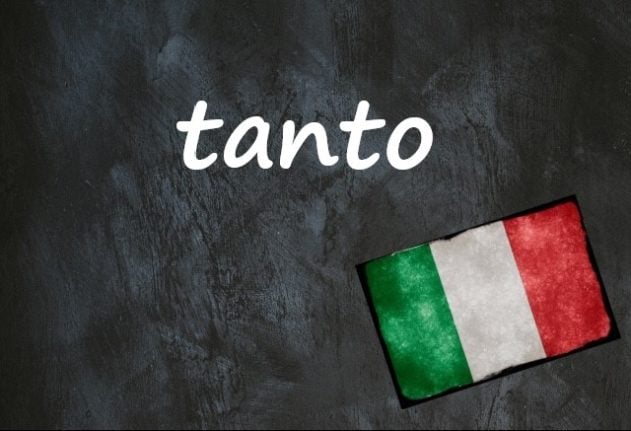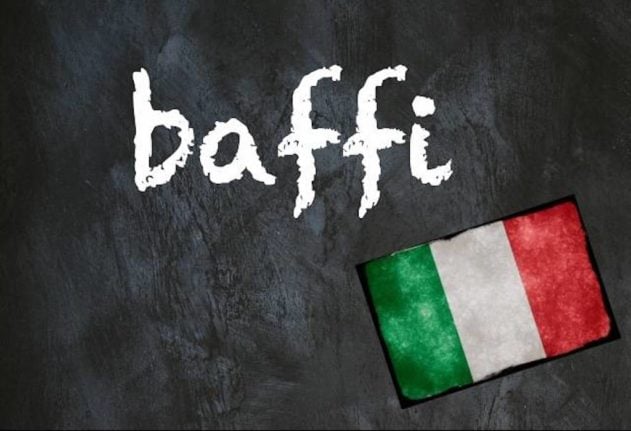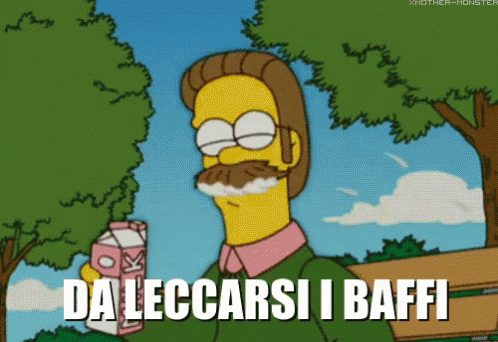If you want to say there’s a lot of something in Italian, you can use today’s word: tanto.
Some confusion can arise for English speakers from the fact that it also means both ‘many’ and ‘much’. But it’s a word you’ll need right from the start of your Italian language-learning journey.
You don’t need advanced grammar knowledge to use it. As an adjective, it’s pretty straightforward, as long as you know the basic rule that the form of an Italian adjective changes (tanto/a/i/e) depending on the noun (whether it’s masculine or feminine, and singular or plural).
See what we mean in the following examples:
non abbiamo tanto tempo(masculine singular)
We don’t have much time
c’è tanta neve sulle montagne (feminine singular)
There’s a lot of snow on the mountains
ho speso tanti soldi (masculine plural)
I spent a lot of money
ci sono tante mele sull’albero (feminine plural)
There are a lot of apples on the tree
So what’s the difference between tanto and that other common Italian quantifier, molto?
Sometimes, nothing. These two words can in many cases be used interchangeably to express the fact that there’s simply a lot of something.
But, other times, tanto has a more emphatic feeling to it than molto, as you can see from the following example:
Maria ha molti gatti as opposed to Maria ha tanti gatti
Maria has a lot of cats as opposed to Maria has loads of cats.
So there are situations where you might want to use tanto to stress your point:
Ti ho detto tante volte di non toccare le forbici!
I told you loads of times not to touch the scissors!
Tanto as an adverb
Tanto (like molto) is also used as an adverb. In this case it means ‘very’, ‘very much’, or ‘a lot’.
When used as an adverb, the ending stays in the masculine singular form.
Grazie, siete stati tanto gentili
Thank you, you were very kind
Oggi ho lavorato tanto
Today I worked a lot
The superlative
And if you really want to stress your point, you’ll be pleased to know that you can add the suffix -issimo(/a/e/i) to tanto to create the superlative form.
You can use it on an adjective:
C’era tantissima gente alla festa
There were loads of people at the party
Or an adverb with a verb:
Oggi ho lavorato tantissimo
Today I worked really hard
But as an adverb with an adjective it sadly doesn’t work.
For example, don’t say ‘questa torta è tantissima buona’.
Instead, here you could use another word that commonly gets confused with tanto, troppo; meaning ‘too much’ or ‘too many’, but also often used to stress that something is ‘really’ or ‘so’ good/bad/etc.
Questa torta è troppo buona!
This cake is really good!
Note how, as troppo is used as an adverb (to modify the adjective buona), you don’t need to change the ending depending on the noun.
Who knew there were so many ways to say ‘many’, or that there was so much to it?
Do you have an Italian word you’d like us to feature? If so, please email us with your suggestion.




 Please whitelist us to continue reading.
Please whitelist us to continue reading.
Great!